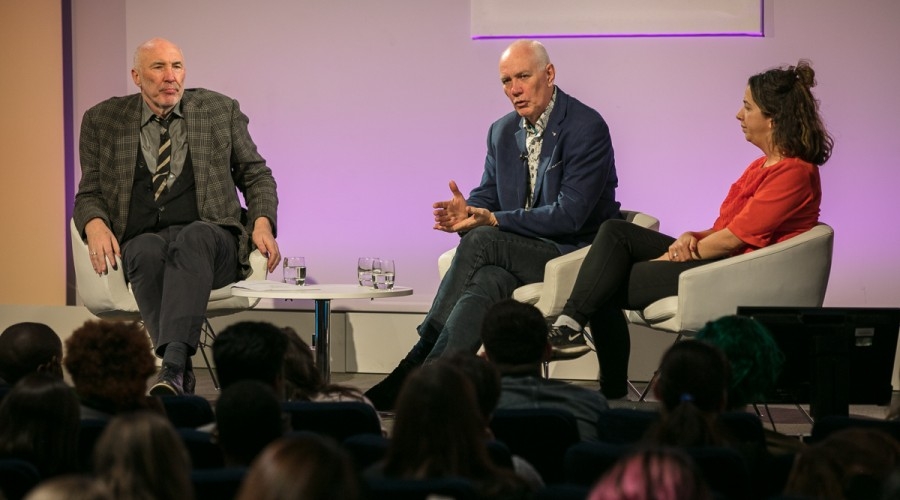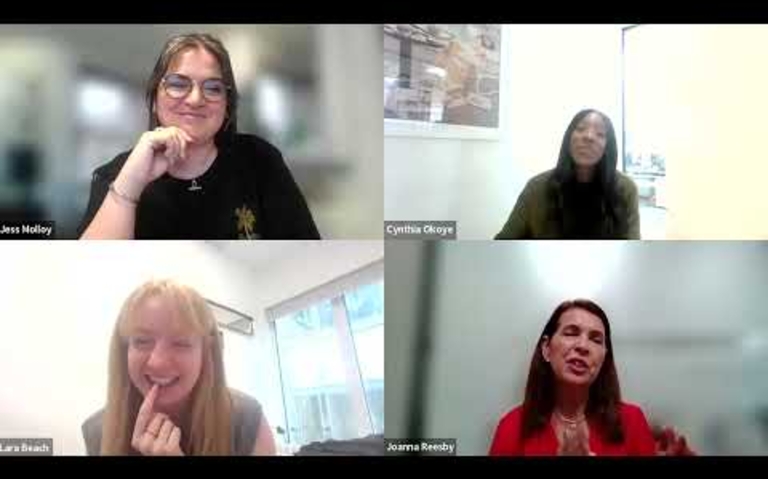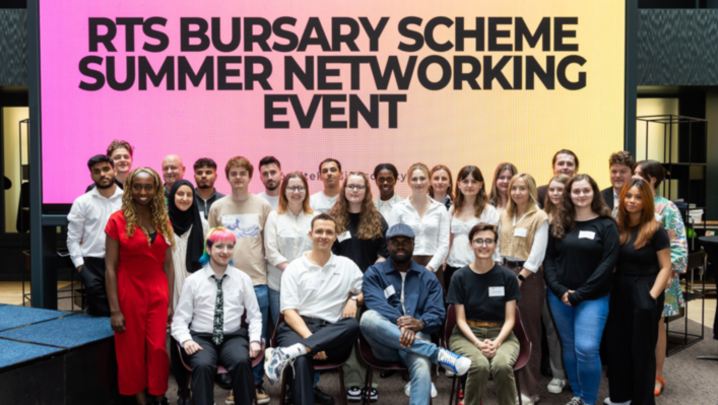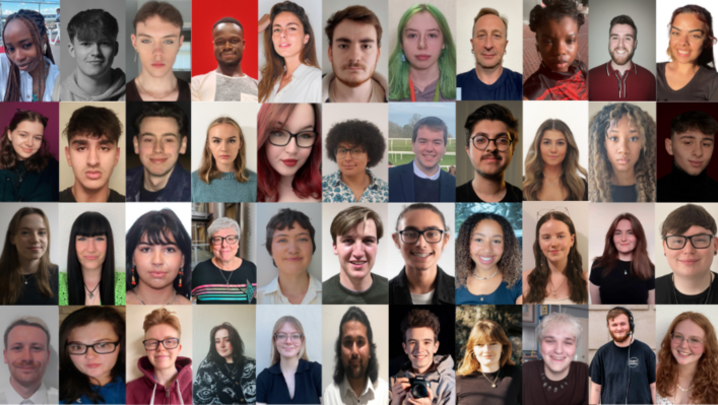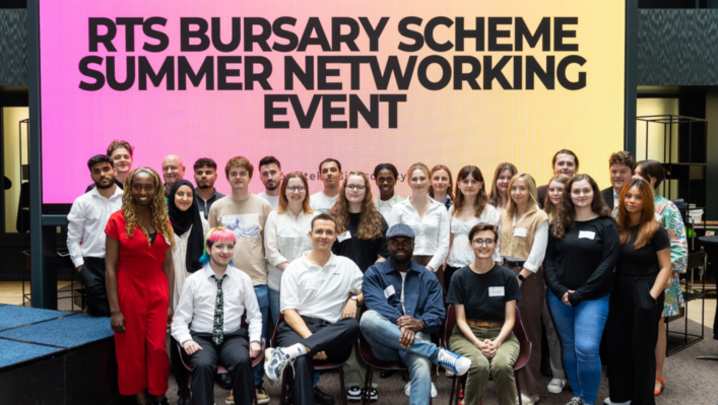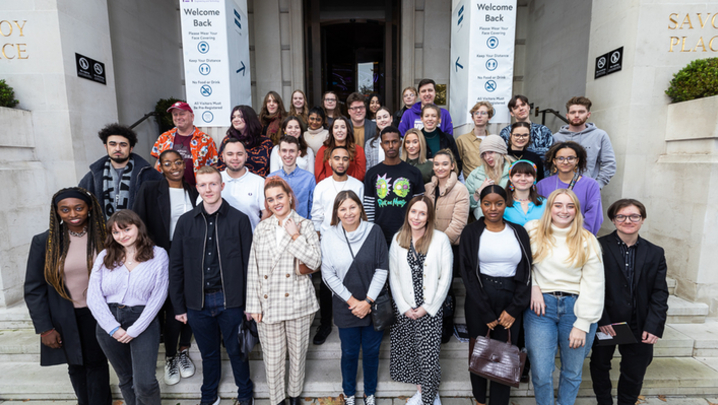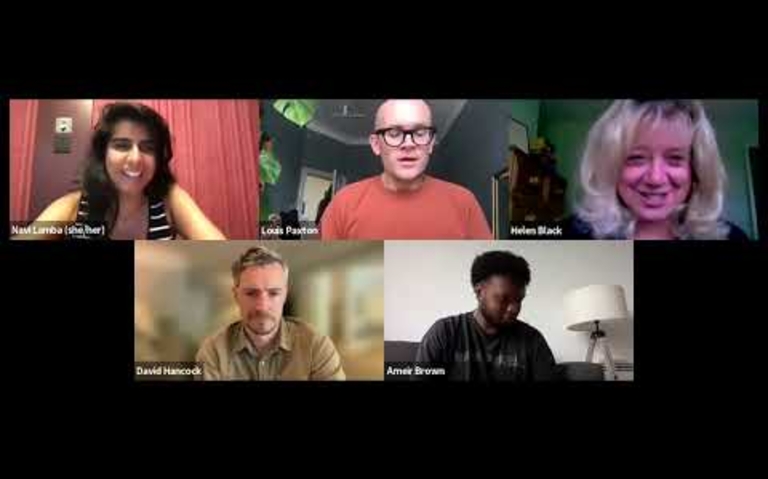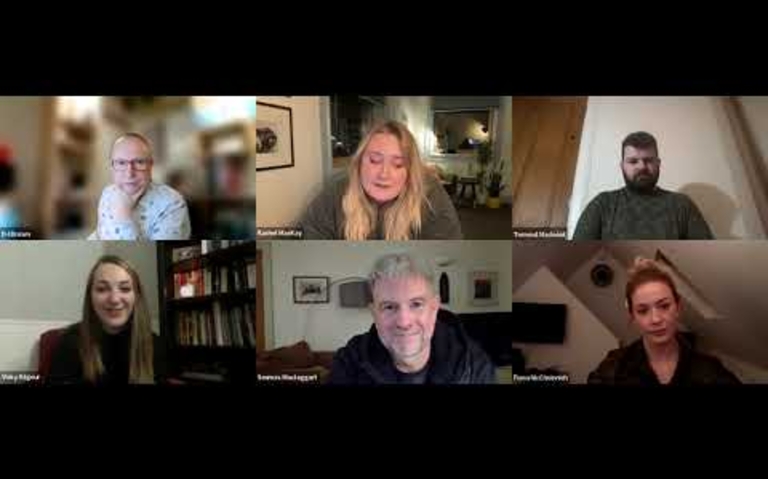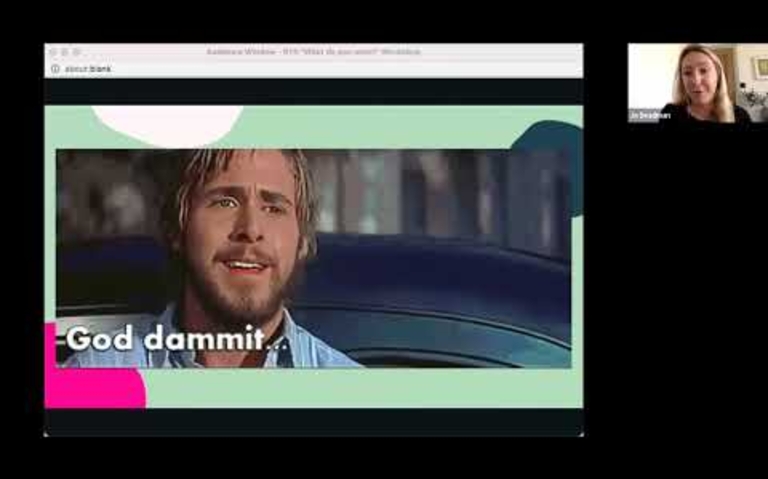The duo were in conversation with Alex Graham, joint chief executive of Two Cities Television, who argued that True Vision “takes on the really important subjects, whether that’s poverty or human rights or inequality, but in a way that takes you directly into the heart of the human stories”.
Woods on being fired from his first job at an advertising agency: “I was working with really not very nice people and not enjoying it. The one bit of advertising that seemed to be a bit interesting was making ads, so I started writing letters … I probably wrote about 150 … and eventually I got a job as a [TV] researcher.”
The best advice he ever received: “If you want to succeed in this business, sheer bloody-minded perseverance is the most important quality you have to develop.”
On selling an idea: “Tasters are great … Do it on your phone – it doesn’t have to be shot on a £20,000 camera, because [commissioners] are interested in the characters and story you’ve got … Don’t send people 20-page ideas – [keep it] short … It’s often worth working with a production company like True Vision, Raw, Blast! or Century, which already have the access to commissioners and know what they’re interested in. [And] it’s really important to be aware of what the broadcasters have already done.”
On making heart-rending docs such as True Vision’s multi-award-winning film about AIDS orphans in South Africa, The Orphans of Nkandla: “You’re there in order to capture the reality. The temptation is to intervene but, if you intervene, then you change the reality … You have to let the reality play out because, if you don’t let things happen and get them in the can, then you don’t have the film that has the power to affect things, not just for these children but for hundreds of thousands of children across Africa … We often record the reality and then intervene afterwards … For this particular film, we set up a foundation, which is still going.”
The film-maker has a responsibility to look after their contributors: “It’s more of a vocation than a job – you have to be someone who cares about people. You form a relationship with [your contributors]. It’s not friendship because you are making a film about them … but you want to keep in touch, keep supporting them if you can.”
The power of television: “You see some really interesting films at [documentary] festivals, which 10,000 people will probably see in the life of a film … They’re not going to have an impact on the world unless a broadcaster picks them up and shows them.”
Katie Rice worked briefly as a runner before landing her first TV job as a researcher on True Vision’s 2011 BBC One doc Poor Kids: “I wanted to make human interest films and, without sounding clichéd, make a difference.”
She went on to direct Child of Mine, a series for Channel 4 about couples affected by stillbirth. In it, she always respected the wishes of her parent contributors: “All our films are based on really strong relationships with contributors. If they want us to stop [filming] we stop. It’s not our story – it’s theirs.”
By Matthew Bell.

